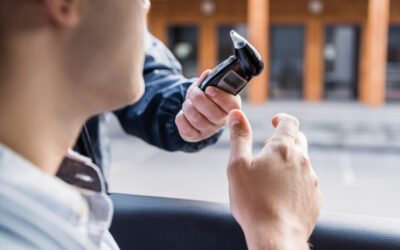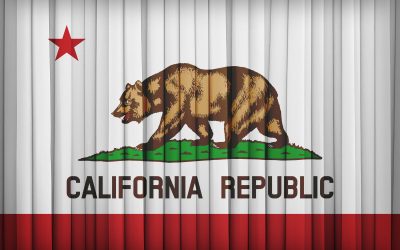
There are circumstances under California law where a driver convicted of DUI may have their driver’s license permanently revoked. In most cases, permanent means permanent—there is no chance of getting your license back.
However, most California DUIs involve only a temporary suspension. Additionally, many people can continue driving with a restricted license if they install an ignition interlock device (IID) after a conviction. You can learn more with a Los Angeles DUI lawyer.
An attorney can review the conditions under which a permanent license revocation might apply and how to avoid it. Learn more by calling or completing our online contact form.
When Does California Permanently Revoke a Driver’s License for DUI?
California may permanently revoke a driver’s license after some DUI convictions. Some types of DUI always carry permanent license revocation. Other types can carry a permanent revocation if the judge decides it’s warranted.
You may lose your license permanently if the court convicts you of:
DUI Murder or DUI Manslaughter
If your DUI resulted in someone’s death, you could face charges under CA Penal Code 187 – Murder. This charge implies a conscious disregard for human life. The court may revoke your license after a conviction for DUI murder.
DUI manslaughter or vehicular manslaughter could also lead to a revocation in some cases, but typically, drivers just face a suspension period.
A 4th Offense DUI
California keeps track of your past criminal record, and DUI penalties get stricter with each conviction. If this is your fourth DUI, the court may revoke your license for life. However, the state does not typically permanently revoke a license in this situation.
Commercial drivers could permanently lose their commercial driver’s license after a second DUI conviction.
DUI with Serious Injury
Judges decide the results of a Driving Under the Influence of Alcohol or Drugs Causing Injury conviction. You could face three years of suspension or could lose your license permanently. Most of the time, the court will not permanently revoke your driving privileges for this offense.
You may suffer a lengthy license suspension (sometimes up to 10 years) for all other DUI charges in California, but you can eventually expect to get your license back.
So, can your driver’s license be permanently revoked for a DUI in California? While this may happen in some cases, it will not generally happen.
Can California Permanently Revoke Your License for Other Reasons?
California may revoke your license for a few reasons unrelated to DUI charges. Revocation may occur due to:
- Addiction to alcohol or drugs
- Instances of road rage along with reckless driving
- The presence of mental or physical disorders
A lawyer can provide you with legal advice about options to protect your license.
What Does California Do Instead of Revoking a Driver’s License?
California does not revoke a driver’s license after a DUI conviction in most cases. Instead, drivers may maintain their driving privileges through the statewide ignition interlock device program. This program requires most people convicted of driving under the influence of alcohol to install an IID on their vehicle.
An IID functions as a personal breathalyzer device. You must keep this device on your motor vehicle for a set period of time and use it each time you want to drive, allowing you to continue using your driving privileges through a restricted license.
Can your driver’s license be permanently revoked for a DUI in California? In most cases, you will not face this repercussion, but you may face other potential penalties after a conviction, including fines and jail time.
Will California Suspend Your Driver’s License?
In some cases, California may suspend your driver’s license if the police arrest you and claim you had an elevated blood alcohol concentration (BAC) while operating a motor vehicle. You could face a suspension before a conviction under the state’s traffic laws.
You may face:
Administrative Suspension
An automatic suspension happens 30 days after your DUI arrest. The Department of Motor Vehicles (DMV) issues this kind of suspension. This kind of suspension is never permanent.
You can request an administrative hearing quickly after an arrest to avoid this kind of suspension with help from a criminal defense attorney.
Official Suspension
Suspension can be “hard” or “soft.” Hard suspension means no driving at all—with no exceptions. The soft suspension means you may qualify for restricted driving privileges. Often, a DUI includes a period of hard suspension followed by a period of soft suspension.
Can You Get a Hardship License Instead of a Revocation?
If you have served your hard suspension time and meet other qualifications, you can apply for temporary, restricted driving privileges(also known as a “hardship license”).
If you’re approved, you’ll get a temporary license that lets you drive to and from work and court-ordered drug or alcohol treatment. This kind of license allows no other driving.
How to Keep Your Driver’s License after a California DUI
When your driver’s license is on the line, you should seek professional legal help. A good DUI defense lawyer may reduce your charge to something less severe so that it does not trigger a license revocation.
In other DUI charges, the judge gets to make the call. A DUI attorney can help you present the most robust case possible. You may be able to win leniency from the judge by voluntarily entering alcohol or drug treatment.
Or, you may work out a deal with the prosecutor that does not involve a permanent license revocation.
Learn More About the Permanent Revocation of a License After a DUI
Can your driver’s license be permanently revoked for a DUI in California? In most cases, California does not revoke your license for driving with an elevated blood alcohol level. However, you may face a license suspension or have to install an IID.
You can work with a Los Angeles DUI lawyer to get legal counsel about handling drunk driving charges and protecting your driving privileges. Find out more about handling a criminal charge with an experienced attorney. Call or fill out our online contact form for additional information.







